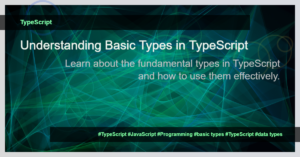Introduction:
PostgreSQL is a powerful open-source relational database management system known for its stability, extensibility, and strong transactional support. If you’re preparing for a PostgreSQL interview, it’s essential to familiarize yourself with the frequently asked questions and have a good understanding of the database concepts. In this article, we will cover some commonly asked PostgreSQL interview questions along with detailed answers.
Question 1: What is PostgreSQL?
Answer:
PostgreSQL is an object-relational database management system (ORDBMS) that provides robust database management capabilities. It offers a wide range of features, including support for complex queries, data types, indexing, and transactions. PostgreSQL is known for its stability and has a strong reputation for reliability and data integrity.
Question 2: What are the different types of data manipulation commands in PostgreSQL?
Answer:
PostgreSQL provides several data manipulation commands to interact with the database. The commonly used commands include SELECT, INSERT, UPDATE, and DELETE. The SELECT command is used to retrieve data from one or more tables. The INSERT command is used to insert new records into a table. The UPDATE command is used to modify existing records, and the DELETE command is used to remove records from a table.
- PostgreSQL Interview Questions and Answers
- Interview Checklist for MySQL Candidates
- Oracle Interview Questions and Answers
- SQL Create, Insert, Update, and Delete: Basic Database Operations
- Mastering CRUD Operations in Oracle: A Comprehensive Guide
Question 3: What are data definition commands in PostgreSQL?
Answer:
Data definition commands in PostgreSQL are used to create, modify, or delete database objects such as tables, views, indexes, and sequences. The commonly used data definition commands include CREATE, ALTER, and DROP. The CREATE command is used to create new database objects, the ALTER command is used to modify existing objects, and the DROP command is used to delete objects from the database.
Question 4: What is data control language (DCL) in PostgreSQL?
Answer:
Data control language (DCL) in PostgreSQL is used to control access to the database objects and privileges granted to users. DCL commands include GRANT and REVOKE. The GRANT command is used to assign privileges to users and groups, while the REVOKE command is used to revoke previously assigned privileges.
Question 5: What are the responsibilities of a database administrator in PostgreSQL?
Answer:
A database administrator (DBA) in PostgreSQL is responsible for the overall management and maintenance of a PostgreSQL database environment. Their responsibilities include database design, performance tuning, backup and recovery, user management, security, and monitoring. A DBA ensures the database operates smoothly while maintaining data integrity and availability.
Question 6: What are the different data types supported in PostgreSQL?
Answer:
PostgreSQL supports a wide range of data types, including numeric, character, boolean, date/time, binary, and array types. Additionally, PostgreSQL allows users to define custom data types using the CREATE TYPE command. The flexibility of data types in PostgreSQL makes it suitable for a variety of applications.
- Demystifying Basic Types in TypeScript
- Understanding Different Data Types in Python
- Understand JavaScript Data Types with Examples
- PostgreSQL Interview Questions and Answers
Question 7: How can you optimize queries in PostgreSQL?
Answer:
To optimize queries in PostgreSQL, you can consider various techniques such as creating indexes on frequently queried columns, rewriting queries to use more efficient joins or subqueries, and analyzing query execution plans to identify possible bottlenecks. It’s also important to regularly monitor database performance and adjust configuration parameters accordingly.
Question 8: What is indexing in PostgreSQL?
Answer:
Indexing in PostgreSQL is the process of creating index data structures to improve the speed of data retrieval operations. Indexes are created on specific columns or expressions to facilitate quick data access based on the indexed values. PostgreSQL supports various types of indexes, including B-tree, hash, GiST, and GIN.
Wrap up:
Preparing for a PostgreSQL interview requires a solid understanding of database management concepts, SQL queries, data types, and query optimization techniques. By reviewing these commonly asked questions and their answers, you will be well-equipped to demonstrate your knowledge and excel in your PostgreSQL interview.



